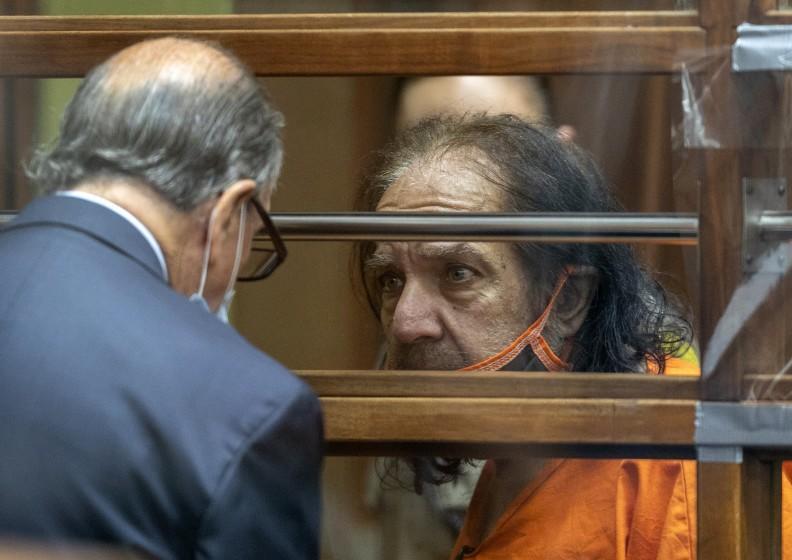
A judge suspended court proceedings in the rape case against Ron Jeremy on Thursday after a lawyer raised doubts about the disgraced porn star’s mental health.
Six weeks before the start of a trial on charges that he sexually assaulted nearly two dozen women, Jeremy, 68, was unable to recognize his attorney, refused to get into his wheelchair and was generally “nonresponsive” inside of a cell at a downtown L.A. courthouse, according to his attorney, Stu Goldfarb.
Los Angeles County Superior Court Judge George Lomeli agreed to pause the criminal case against Jeremy and scheduled a mental health competency hearing for April.
Charges were first brought against Jeremy in 2020, when prosecutors alleged he had raped four women whom he had met in the Rainbow Room and other bars along the Sunset Strip. In the weeks after the charges were announced, investigators with the Los Angeles County Sheriff’s Department received at least 30 more allegations of rape and other sexual assaults against Jeremy in incidents dating back to 2000, authorities said.
Six additional women have since told The Times that Jeremy either raped or groped them at adult film conventions, brothels or strip clubs around the country. One of those incidents has since been added to the criminal case against Jeremy.
Jeremy was indicted on more than 30 criminal counts last year based on allegations made by 21 different women. He faces a dozen counts of forcible rape, seven counts of forcible oral copulation, six counts of sexual battery by restraint and various charges of sexual offenses committed against women with foreign objects or while they were sleeping.
Jeremy’s defense attorneys, Goldfarb and Kate Hardy, declined to answer additional questions after the hearing. Jeremy has pled not guilty. Deputy Dist. Atty. Paul Thompson, the lead prosecutor on the case, said outside court that he had no knowledge of Jeremy’s condition and declined to comment further.
During Thursday’s hearing, Lomeli was supposed to rule on a defense motion to break the case against Jeremy into 21 separate trials, one for each accuser. In the motion, Jeremy’s attorneys argued that having so many accusers testifying against Jeremy at a single trial would make it impossible for him to receive a fair trial.
This story originally appeared in Los Angeles Times.




